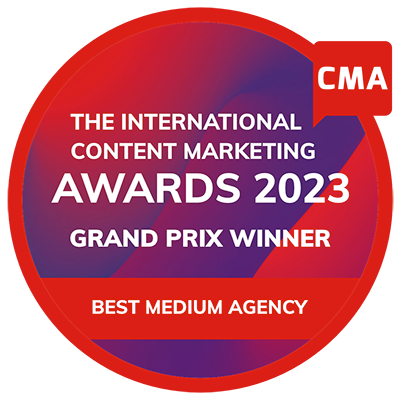
The changing face of the luxury consumer
Jessica Bennett,
-
DOWNLOAD
Your Content Marketing Checklist >

-
REQUEST TODAY
A Content Consultation >

In our increasingly digitised environment, our world changes faster than ever, with new technology and new sensibilities affecting everything and everyone – including the luxury consumer.
Historically, luxury brands had been resistant to the call of digital; they feared losing control of their brand image while the internet ran counter to their values, signalling instead mass appeal, accessibility and availability (evidenced by the fact it took Prada until 2007 to create a website).
However, as digital natives come of age with a new set of values and tech such as AI becomes part of everyday life, brands need to re-evaluate the core aspects of their luxury marketing strategies to reach a new wave of consumers.
Who is today’s luxury consumer?
Previous luxury consumer demographics with spending power (Generations X and Y) are now facing life stages such as children at university and ageing parents that consume a lot of attention and disposable income.
The new wave of luxury consumers are digital natives (younger Millennials and Generation Z), not knowing much of life before the internet. According to Statista, Millennials were the leading customer group for personal luxury goods in 2024, accounting for 46% of all luxury goods spending worldwide. Luxury consumers in this demographic (aged between 19 and 41) were more likely to engage with brands on social media, such as following an influencer or sending direct messages to brands.
Meanwhile, Generation Z alone represents an estimated $450bn (£353bn) in spending power across the world and is anticipated to account for 25-30% of all luxury purchases by 2030.
Millennials and Generation Z have a very different set of values to Generations X and Y and are entering the workforce, meaning that they increasingly have the spending power brands will want to secure.
What do luxury consumers want?
While some characteristics remain the same – these people are empowered, highly demanding, convenience-driven, time-poor, informed and knowledgeable – some values have shifted.
This generation of luxury consumer is driven by:
- Sustainability and ethical practices – they demand transparency and strong commitments to these causes. All generations have embraced the concept of ‘slow luxury’ and its emphasis on quality, craftsmanship and mindful consumption over mass-production. But the new generation of luxury consumer expects brands to take a stand on sustainability, diversity, and ethical practices that goes beyond the core product or service offering. They have also embraced ‘quiet luxury’ (a focus on understated elegance and quality over ostentatious displays of wealth), so are less interested in ‘flashy’ brands but are drawn to luxury brands that align with their values.
- Experiential luxury – they value experiences over material possessions. However, unlike older generations, they place more value on digital experiences. For example, augmented reality lenses and virtual try-ons are a digital form of experiential marketing that creates immersive and memorable moments (see Valentino’s example).
- Digital integration – they are comfortable with online and offline worlds and expect seamless integration between the two. They are more likely than previous generations to be influenced by online content creators and to belong to online communities.
- Personalisation – they appreciate brands that offer tailored products and services that reflect their individual tastes and values. They also appreciate the opportunity to personalise products and engage in the design process as a form of self-expression, driven by a desire to stand out in the crowded social media space where they spend a lot of time.
- Connection – luxury is no longer just about status; it’s about connecting with a culture or brand community that aligns with their values and offers a sense of belonging. They crave connections with like-minded individuals online.
GWI’s luxury data set outlines the top three reasons people buy luxury goods:
- To treat myself to something special/reward myself.
- To express my personal style and taste.
- To own high-quality and well-crafted items.
As a result, purchases are considered, with 65.7% of consumers saying they usually have a specific item in mind when looking for luxury products.
However, it’s important to keep in mind that due to the amount of time spent online, younger consumers investigate and add more brands and products to their initial consideration phase. A survey by Snapchat found that Gen Z enjoys the information-gathering stage, and that shopping is a favourite pastime, with the majority (89%) of respondents spending up to a fifth of their leisure time on this activity.
How must brands react?
It is important luxury brands keep the above factors in mind when developing their content strategy – they need to quickly and efficiently demonstrate their brand’s ethos with an awareness that the customer journey may be long. The underlying watchwords for all luxury consumers are authenticity and experience.
As a result, brands are starting to shape their marketing around four key areas: luxury storytelling, creativity in digital marketing (to sync with on - and offline experiences) and personalised communications all underpinned by robust data insight. And of course, all the now traditional digital marketing tactics are still of value from luxury SEO through email to social media.
Ensuring your brand has a unique point of view and story to tell will ultimately be vital in terms of who wins consumers’ hearts and minds as they emerge into the luxury landscape.
Resources
Millennials were the leading customer groups of personal luxury goods in 2024 – Statista
Generation Z alone represents an estimated $450bn (£353bn) in spending power across the world – Snapchat Business
Generation Z is anticipated to account for 25-30% of all luxury purchases by 2030 – Bain & Company
Millennials and Generation Z are less interested in ‘flashy’ brands but are drawn to luxury brands that align with their values – Giant Leap Digital
Augmented reality lenses and virtual try-ons are a digital form of experiential marketing that creates immersive and memorable moments (see Valentino’s example) – The Industry. Fashion
GWI’s luxury data set outlines the top three reasons people buy luxury goods – GWI
Related articles
Read more insightful articles
See more from the blogContent marketing – are you taking a sustainable approach?
The changing face of the luxury consumer
Sustainability and luxury travel content
What’s next for luxury digital marketing?
Proud to be a winner of industry awards, recognised as content marketing experts in print and digital media.












